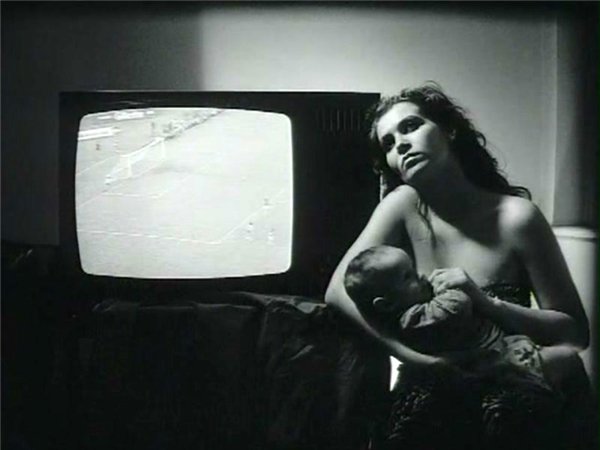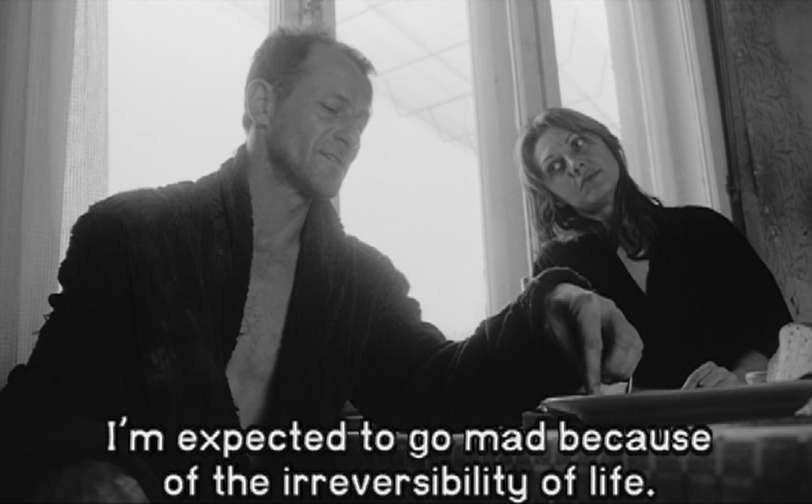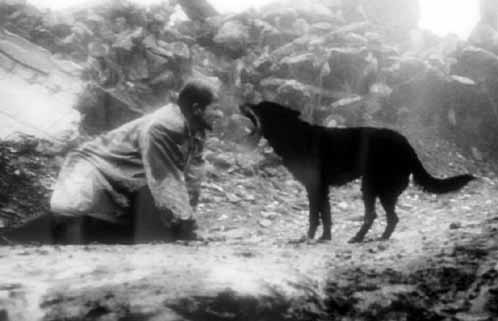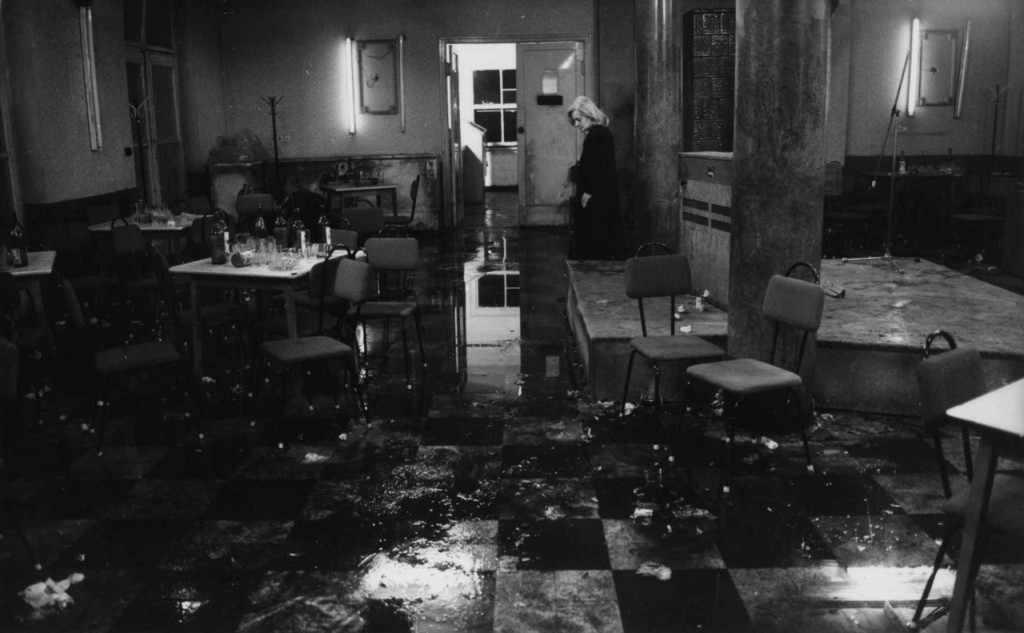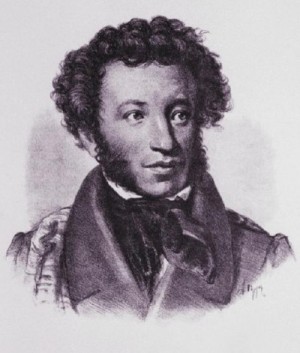2016 was a year of chaos for me as it was for many others. This list is provisional rather than a source of eternal endorsements. No, I did not read all of Anwar Sheikh’s Capitalism, but what I did read seemed serious and substantive enough to make it worthy of mention. Despite the inconsistencies of John Hands’ Cosmosapiens, I find it makes enough points about the traps of scientific orthodoxy to make it a provocative and worthy read. And there are books like Alec Ash’s Wish Lanterns that I simply didn’t get to.
I chose three books above all others as those that helped me get the most distance and perspective from the immediate tumult. Each of them did so in a very different way. Goodstein’s Simmel study is one of the few serious philosophical studies of Simmel and a major work, dedicated to showing his obscured influence through the 20th century and placing him alongside Musil as an eerily prescient prophet. It made a suitable epilogue to my commentary on Simmel’s Philosophy of Money.
Trentmann’s Empire of Things is an absorbing attempt to apply Annales-style ecological analysis to modern history and particularly the process of consumer consumption. It crosses Braudel with Veblen, yet the result sometimes approaches Simmel in its portrait of the self-reinforcing drives of consumption. As a portrait of larger ecological processes guiding our world, it pulled me away from the enveloping yet wholly reactive world of news and politics.
And Krasznahorkai’s chronicle of his travels in China is also a provider of needed distance, walking the path he has charted out that weaves between order and chaos, familiar and foreign, human and inhuman, beauty and suffering, profound knowledge and profound ignorance. He mentions Hungarian revolutionary Sándor Petőfi’s poem “Freedom, Love,” written with Hungarian which in Fu Yin’s translation (the book claims Lu Xun, but I believe this is inaccurate) became one of the most well-known poems in Communist China. With that irony in mind, it seems fitting to quote it here.
Szabadság, szerelem!
E kettő kell nekem.
Szerelmemért föláldozom
Az életet, Szabadságért föláldozom Szerelmemet.
Liberty and love
These two I must have.
For my love I’ll sacrifice
My life.
For liberty I’ll sacrifice
My love.
生命诚可贵,
爱情价更高。
若为自由故,
两者皆可抛。
Books of the Year
Destruction and Sorrow beneath the Heavens: Reportage (The Hungarian List)
Krasznahorkai, László (Author), Mulzet, Ottilie (Translator)
Seagull Books
Empire of Things: How We Became a World of Consumers, from the Fifteenth Century to the Twenty-First
Trentmann, Frank (Author)
Harper
Georg Simmel and the Disciplinary Imaginary
Goodstein, Elizabeth (Author), Goodstein, Elizabeth (Primary Contributor)
Stanford University Press
Fiction
Between Dog and Wolf (Russian Library)
Sokolov, Sasha (Author), Boguslawski, Alexander (Translator)
Columbia University Press
Fragments of Lichtenberg (French Literature)
Senges, Pierre (Author), Flanders, Gregory (Translator)
Dalkey Archive Press
Bottom's Dream (German Literature)
Schmidt, Arno (Author), Woods, John E. (Translator)
Dalkey Archive Press
The Last Wolf & Herman
Krasznahorkai, László (Author), Batki, John (Translator), Szirtes, George (Translator)
New Directions
Zama (New York Review Books Classics)
Di Benedetto, Antonio (Author), Allen, Esther (Translator), Allen, Esther (Preface)
NYRB Classics
Bright Magic: Stories
Doblin, Alfred (Author), Searls, Damion (Translator), Grass, Gunter (Introduction)
NYRB Classics
Iza's Ballad (New York Review Books Classics)
Szabo, Magda (Author), Szirtes, George (Translator), Szirtes, George (Introduction)
NYRB Classics
DISPOSSESSED
Borbely, Szilard (Author)
Perennial
Berlin-Hamlet (NYRB Poets)
Borbély, Szilárd (Author), Mulzet, Ottilie (Translator)
NYRB Poets
Loving (New York Review Books Classics)
Green, Henry (Author), Robinson, Roxana (Introduction)
NYRB Classics
Caught (New York Review Books Classics)
Green, Henry (Author), Wood, James (Introduction)
NYRB Classics
Back (New York Review Books Classics)
Green, Henry (Author), Eisenberg, Deborah (Introduction)
NYRB Classics
The Invisibility Cloak
Fei, Ge (Author), Morse, Canaan (Translator)
NYRB Classics
The Gradual
Priest, Christopher (Author)
Titan Books
The Doomed City (Rediscovered Classics)
Strugatsky, Arkady (Author), Strugatsky, Boris (Author), Andrew, Bromfield (Author), Glukhovsky, Dmitry (Author), Glukhovsky, Dmitry (Foreword), Andrew, Bromfield (Translator)
Chicago Review Press
A Book to Burn and a Book to Keep (Hidden): Selected Writings (Translations from the Asian Classics)
Li, Zhi (Author), Handler-Spitz, Rivi (Editor), Lee, Pauline (Editor), Saussy, Haun (Editor)
Columbia University Press
The Lights of Pointe-Noire: A Memoir
Mabanckou, Alain (Author), Stevenson, Helen (Translator)
The New Press
We Need Silence to Find Out What We Think: Selected Essays
Hazzard, Shirley (Author), Olubas, Brigitta (Editor)
Columbia University Press
The Letters of Samuel Beckett: Volume 4, 1966–1989
Beckett, Samuel (Author), Craig, George (Editor), Fehsenfeld, Martha Dow (Editor), Gunn, Dan (Editor), Overbeck, Lois More (Editor)
Cambridge University Press
Soft City: The Lost Graphic Novel
Pushwagner, Hariton (Author), Ware, Chris (Introduction), Herbert, Martin (Afterword)
New York Review Comics
The One Hundred Nights of Hero: A Graphic Novel
Greenberg, Isabel (Author)
Little, Brown and Company
Pascin
Sfar, Joann (Author), Gauvin, Edward (Translator)
Uncivilized Books
The Art of Charlie Chan Hock Chye
Liew, Sonny (Author)
Pantheon
Rosalie Lightning: A Graphic Memoir
Hart, Tom (Author)
St. Martin's Press
Mickey's Craziest Adventures
Trondheim, Lewis (Author), Keramidas, Nicolas (Artist)
IDW Publishing
Dungeon: Monstres – Vol. 6: The Great Animator
Sfar, Joann (Author), Trondheim, Lewis (Author), Stanislas (Author), Keramidas, Nicolas (Author)
NBM Publishing
Nonfiction
The Face of the Buddha
Empson, William (Author), Arrowsmith, Rupert (Editor)
Oxford University Press
Other Minds: The Octopus, the Sea, and the Deep Origins of Consciousness
Godfrey-Smith, Peter (Author)
Farrar, Straus and Giroux
Deep Learning (Adaptive Computation and Machine Learning series)
Goodfellow, Ian (Author), Bengio, Yoshua (Author), Courville, Aaron (Author)
The MIT Press
Recollections: The French Revolution of 1848 and Its Aftermath
Tocqueville, Alexis de (Author), Zunz, Olivier (Editor), Goldhammer, Arthur (Translator)
University of Virginia Press
Ancient Worlds: A Global History of Antiquity
Scott, Michael (Author)
Basic Books
Memory and the Self: Phenomenology, Science and Autobiography
Rowlands, Mark (Author)
Oxford University Press
The Voynich Manuscript
Clemens, Raymond (Editor), Harkness, Deborah E. (Introduction)
Yale University Press
Wilfrid Sellars and the Foundations of Normativity
Olen, Peter (Author)
Palgrave Macmillan
The Invention of Angela Carter: A Biography
Gordon, Edmund (Author)
Chatto & Windus
China’s Crony Capitalism: The Dynamics of Regime Decay
Pei, Minxin (Author)
Harvard University Press
Strangers in Their Own Land: Anger and Mourning on the American Right
Russell Hochschild, Arlie (Author)
The New Press
Europe since 1989: A History
Ther, Philipp (Author), Hughes-Kreutzmüller, Charlotte (Translator)
Princeton University Press
Weltschmerz: Pessimism in German Philosophy, 1860-1900
Beiser, Frederick C. (Author)
Oxford University Press
Rise of the Machines: A Cybernetic History
Rid, Thomas (Author)
W. W. Norton & Company
In the Darkroom
Faludi, Susan (Author)
Metropolitan Books
Toward Democracy: The Struggle for Self-Rule in European and American Thought
Kloppenberg, James T. (Author)
Oxford University Press
Toward a Pragmatist Metaethics (Routledge Studies in American Philosophy)
Heney, Diana (Author)
Routledge
The Moral Economy: Why Good Incentives Are No Substitute for Good Citizens (Castle Lecture Series)
Bowles, Samuel (Author)
Yale University Press
The Cultural Revolution: A People's History, 1962—1976
Dikötter, Frank (Author)
Bloomsbury Press
From the War on Poverty to the War on Crime: The Making of Mass Incarceration in America
Hinton, Elizabeth (Author)
Harvard University Press
A Rasa Reader: Classical Indian Aesthetics (Historical Sourcebooks in Classical Indian Thought)
Pollock, Sheldon (Author)
Columbia University Press
Global Inequality: A New Approach for the Age of Globalization
Milanovic, Branko (Author)
Belknap Press: An Imprint of Harvard University Press
The Path: A New Way to Think About Everything
Michael Puett (Author), Christine Gross-Loh (Author)
Viking
America's War for the Greater Middle East: A Military History
Bacevich, Andrew J. (Author)
Random House
Politics against Domination
Shapiro, Ian (Author)
Belknap Press
The Origin and Nature of Life on Earth: The Emergence of the Fourth Geosphere
Smith, Eric (Author), Morowitz, Harold J. (Author)
Cambridge University Press
How Not to Network a Nation: The Uneasy History of the Soviet Internet (Information Policy)
Peters, Benjamin (Author)
Mit Pr
Law in American History, Volume II: From Reconstruction Through the 1920s
White, G. Edward (Author)
Oxford University Press
Reality and Its Dreams
Geuss, Raymond (Author)
Harvard University Press
The Seven Pillars of Statistical Wisdom
Stigler, Stephen M. (Author)
Harvard University Press
The Ways of the World
Harvey, David (Author)
Oxford University Press
Cosmosapiens: Human Evolution from the Origin of the Universe
Hands, John (Author)
Abrams Press
Strange Gods: A Secular History of Conversion
Jacoby, Susan (Author)
Pantheon
The Sleeping Sovereign: The Invention of Modern Democracy (The Seeley Lectures)
Tuck, Richard (Author)
Cambridge University Press
Capitalism: Competition, Conflict, Crises
Shaikh, Anwar (Author)
Oxford University Press
Democracy for Realists: Why Elections Do Not Produce Responsive Government (Princeton Studies in Political Behavior, 1)
Achen, Christopher H. (Author), Bartels, Larry M. (Author)
Princeton University Press
Democracy: A Life
Cartledge, Paul (Author)
Oxford University Press
The Rise and Fall of American Growth: The U.S. Standard of Living since the Civil War (The Princeton Economic History of the Western World)
Gordon, Robert J. (Author)
Princeton University Press
Individuality and Entanglement: The Moral and Material Bases of Social Life
Gintis, Herbert (Author)
Princeton University Press
The Cambridge History of Japanese Literature
Shirane, Haruo (Editor), Suzuki, Tomi (Editor), Lurie, David (Editor)
Cambridge University Press
Alchemist in Literature: From Dante to the Present
Ziolkowski, Theodore (Author)
Oxford University Press
All the Kremlin's Men: Inside the Court of Vladimir Putin
Zygar, Mikhail (Author)
PublicAffairs
The Great Leveler: Violence and the History of Inequality from the Stone Age to the Twenty-First Century (The Princeton Economic History of the Western World, 74)
Scheidel, Walter (Author)
Princeton University Press
Medieval Europe
Wickham, Chris (Author)
Yale University Press
The Great Convergence: Information Technology and the New Globalization
Baldwin, Richard (Author)
Belknap Press
This Vast Southern Empire: Slaveholders at the Helm of American Foreign Policy
Karp, Matthew (Author)
Harvard University Press
Experimental Music Since 1970
Gottschalk, Jennie (Author)
Bloomsbury Academic
Loft Jazz: Improvising New York in the 1970s
Heller, Michael C. (Author)
University of California Press
American Enlightenments: Pursuing Happiness in the Age of Reason (The Lewis Walpole Series in Eighteenth-Century Culture and History)
Winterer, Caroline (Author)
Yale University Press
Thought in Action: Expertise and the Conscious Mind
Montero, Barbara Gail (Author)
OUP Oxford
The Framers' Coup: The Making of the United States Constitution
Klarman, Michael J. (Author)
Oxford University Press
Bananaworld: Quantum Mechanics for Primates
Bub, Jeffrey (Author)
OUP Oxford
Homo Deus: A Brief History of Tomorrow
Harari, Yuval Noah (Author)
Harper
Krazy: George Herriman, a Life in Black and White
Tisserand, Michael (Author)
Harper
Patient H.M.: A Story of Memory, Madness, and Family Secrets
Dittrich, Luke (Author)
Random House







































































































































